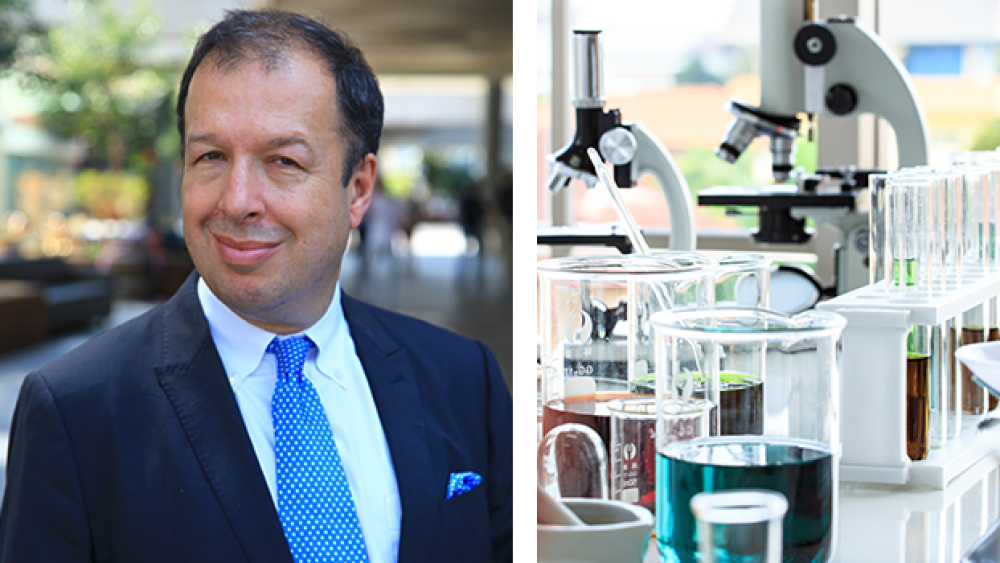Cytovia Holdings, a biopharma company focused on natural killer (NK) cells, merged with special purpose acquisition company (SPAC) Isleworth Healthcare Acquisition Corp. to go public.
Cytovia CEO Daniel Teper/Courtesy of Cytovia Therapeutics
Cytovia Holdings, a biopharma company focused on natural killer (NK) cells, has announced a merger with special purpose acquisition company (SPAC) Isleworth Healthcare Acquisition Corp. through which it will go public.
Isleworth is led by Al Weiss, former president, of Worldwide Operations for Walt Disney Parks and Resorts, and Bob Whitehead, a long-standing pharmaceutical executive, co-founder and CEO of Sprout Pharmaceuticals and Slate Pharmaceuticals. Whitehead has also held various positions with Auxilium, Prestwick Pharmaceuticals and ZymoGenetics.
A SPAC is sometimes called a “blank-check” company. They are essentially shell companies that raise money in order to buy a company and take it public quickly.
SPAC deals appear to be continuing a trend. On April 20, Coeptis Therapeutics merged with SPAC Bull Horn Holdings in a deal worth about $175 million. Bull Horn will merge into Coeptis and be rebranded as Coeptis Therapeutics Holdings, Inc., trading on the Nasdaq under the COEP ticker symbol.
Last year marked a number of big SPAC deals, such as 23andMe’s deal with VG Acquisition Corp., a SPAC sponsored by Sir Richard Branson’s Virgin Group. Another large deal was Ginkgo Bioworks’ merger with SPAC Soaring Eagle Acquisition Corp., giving the combined company a value of $17.5 billion.
After the merger, Isleworth will be renamed Cytovia Therapeutics. The merged companies will remain listed on the NASDAQ under the ticker symbols INKC and INKCW, reflecting common stocks and warrants, respectively. The combined company will be helmed by Dr. Daniel Teper, Cytovia’s co-founder, chairman and CEO.
“We are grateful for the strong support from new and existing investors and the team of seasoned entrepreneurs at Isleworth,” Teper said. “We expect this transaction to accelerate the execution of Cytovia’s vision to advance NK therapeutics towards a cure for cancer. We are encouraged by our preclinical data recently presented at AACR, which supports advancing development of our iPSC-derived NK cells (iNK) and Flex-NK cell engagers for the treatment of Hepatocellular Carcinoma.”
Cytovia is headquartered in Aventura, Fla. It runs research-and-development labs in Natick, Mass., and a cGMP cell manufacturing plant in Puerto Rico. The company has many scientific partnerships, including with Cellectis, CytoImmune Therapeutics, the Hebrew University of Jerusalem, INSERM and many others.
Lexology noted that “while there is still a long line of privately-held life sciences companies preparing for public market debuts via the traditional IPO route, the pace of new offerings has slowed dramatically.” Last year marked a total of 66 life sciences IPOs in the first half and 48 in the second half, so 2022 is dramatically behind last year’s pace.
A Fenwick survey in January 2022 of life sciences investors and executives suggested they are optimistic about a rebound in the next five years. During the height of the pandemic, with so much attention being paid to Moderna, Pfizer, BioNTech, Novavax and many other life sciences companies, investors were eager to invest in the sector. Some of that enthusiasm has dwindled, as much of the optimism went unrewarded with effective therapeutics. Other factors that undoubtedly play a factor are supply chain issues, inflation, decreased liquidity and unpredictable interest rates. The top challenge at the moment, according to the executives surveyed, is inflation.
Most surveyed don’t expect a rebound this year, as just 25% of life sciences executives reported feeling hopeful and 40% of investors felt optimistic. On the other hand, 51% of executives and 48% of investors surveyed think a turnaround will happen in the next two to five years.





